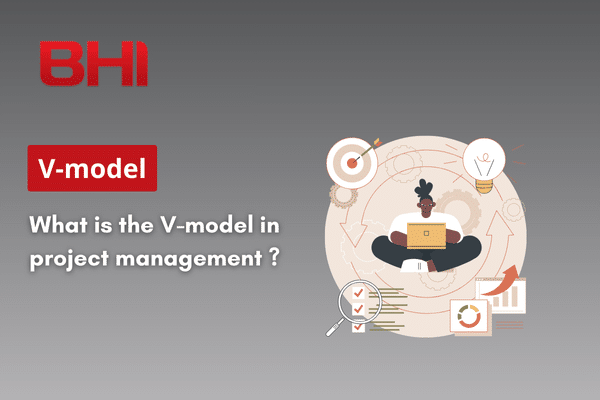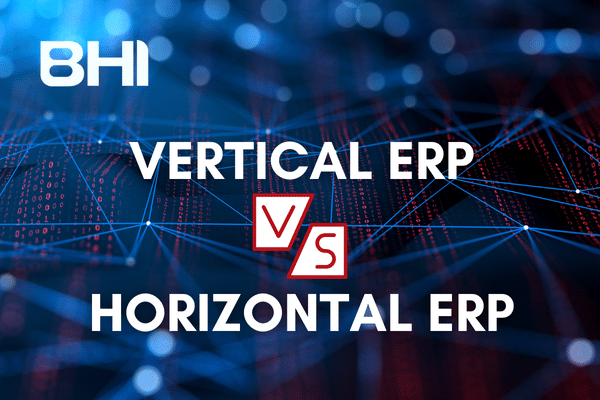Facing increasingly fierce international competition, growing regulatory requirements, and consumers ever more attentive to traceability and product quality, the food industry finds itself today at a decisive crossroads. Digital transformation appears as an essential strategic response to maintain competitiveness and ensure the sustainability of companies in the sector.
In this context, two key functions are particularly affected by this evolution: the Information Systems Department (CIO) and the Finance Department (CFO). What tangible benefits can these departments derive from digitizing their processes ? How can ERP and EPM solutions transform their daily operations and create value for the entire company? Let’s examine these crucial questions for decision-makers in the food industry.
Current State of Digitalization in the Food Industry
The food industry presents an interesting paradox: although it represents one of the most economically important industries, it shows a notable lag in digitalization. According to the Cebios Veille sector study, approximately 38% of food companies have adopted an integrated ERP, a rate significantly lower than that observed in sectors such as automotive (around 67%) and pharmaceuticals (nearly 70%). This lag is particularly explained by the complexity of processes and the fragmentation of the sector.
This gap is explained by several factors specific to the sector:
- The fragmentation of the value chain with numerous actors of various sizes
- The complexity of production processes subject to biological and seasonal constraints
- The heterogeneity of information systems often resulting from successive mergers and acquisitions
- Traditionally limited margins constraining technological investments
Moreover, a significant gap exists between large food groups and SMEs in the sector. According to sector barometers (Cebios Veille, Digital Transformation Observatory), the majority of large food groups have embarked on their digital transformation (more than 70%), while SMEs remain more hesitant, with approximately 30% of them having initiated this shift.
The specific challenges of the food industry amplify the importance of this digitalization:
- Enhanced traceability, demanded by both consumers and regulations
- Management of health constraints and quality controls
- Optimization of supply chains including the cold chain
- The need to anticipate demand variations and production contingencies
In this context, CIOs and CFOs face a significant challenge, but also considerable opportunities.
Benefits for the Information Systems Department
For the CIO of a food company, digitalization brings structuring advantages that transform their role and contribution to the company’s strategy.
A Unified and High-Performance System Architecture
The implementation of a modern ERP such as SAP S/4HANA or JD Edwards allows replacing the multiplicity of heterogeneous systems with a homogeneous platform. The Panorama Consulting 2024 study emphasizes that consolidating systems via a modern ERP can reduce costs related to integration and maintenance of information systems by up to 40-50%, thanks to better homogeneity and standardization of processes.
Data Security and Regulatory Compliance
In a sector subject to strict regulations (HACCP, Food Safety Modernization Act, etc.), digitalization facilitates compliance through standardized and auditable processes. Cybersecurity is a major issue in the food industry. Although precise figures vary according to studies, several reports (notably Cybersecurity Ventures) indicate that nearly 40% of companies in the sector have been victims of significant security incidents recently. Modern ERP solutions now integrate advanced functionalities to strengthen data protection and regulatory compliance.
Automation and Enhancement of IT Teams
The reduction of manual maintenance tasks allows IT teams to refocus on higher value-added projects. According to Gartner, the automation of operational IT tasks allows CIO teams to reallocate a significant portion of their resources, sometimes up to 50-60%, towards innovation and business support projects, thus increasing their strategic value.
Agility and Scalability of Systems
Cloud solutions like S/4HANA Cloud offer unparalleled adaptability to fluctuations in activity specific to the food industry. This flexibility proves particularly valuable during seasonal peak activity periods where processing capacities can be adjusted to demand.
Improvement of Data Quality
The implementation of a single repository eliminates inconsistencies and duplicates, creating what Raphaël Samoun, CEO of BHI Consulting, calls “the assurance of high-quality data made available to decision-makers” – a prerequisite for any advanced analytical initiative.
Benefits for the Finance Department
For the CFO, digitalization represents a major strategic lever, transforming the finance function from a cost center into a true business partner.
Optimization of Financial Processes
The automation of accounting and financial processes significantly reduces closing times. According to the Financial Executives Research Foundation, the automation of financial processes via EPM solutions significantly reduces closing cycles, often by 30-40%. For example, a closing cycle going from 10 to 6-7 days is frequently observed in digitalized companies.
Improvement of Forecast Accuracy
EPM solutions integrating predictive analysis improve the accuracy of financial forecasts, with gains of up to 30-35%, particularly in sectors subject to strong seasonality such as the food industry (Aberdeen Group).
Fine Control of Costs and Profitability
The granularity of collected data allows for a much more precise analysis of profitability by product, by customer, or by distribution channel. CFOs thus have unprecedented visibility on margin optimization levers, particularly crucial in a sector with traditionally tight margins.
Regulatory Compliance and Simplified Reporting
Facing the growing complexity of reporting requirements (IFRS, CSRD, etc.), modern financial solutions integrate automated compliance functionalities. CCH Tagetik, for example, includes modules specifically dedicated to IFRS and CSRD standards that eliminate up to 70% of manual compliance efforts.
Optimization of Working Capital Requirements
Digitalization allows for optimized inventory management and better anticipation of cash flows.
ERP and EPM Solutions as Transformation Levers
The implementation of ERP and EPM solutions often constitutes the backbone of digitalization in the food industry. These platforms bring functionalities specifically adapted to the challenges of the sector.
ERP: The Foundation of Transformation
Modern ERPs like JD Edwards EnterpriseOne or SAP S/4HANA offer functionalities dedicated to the food industry:
- Complete traceability from raw material to finished product, essential for food safety
- Batch management and expiration dates
- Production planning adapted to seasonal constraints
- Integrated regulatory compliance for health standards
The implementation of an ERP adapted to the food industry allows integrating good sector practices and standardizing processes while preserving the business specificities that constitute the company’s added value.
EPM: Strategic Piloting
Complementary to ERPs, EPM solutions like OneStream or CCH Tagetik bring an indispensable strategic dimension:
- Automated financial consolidation for multi-entity groups
- Collaborative and dynamic budget planning
- Unified financial and extra-financial reporting
- Predictive analyses to anticipate market developments
These solutions allow aligning financial strategies with operational objectives, creating true collective intelligence within the organization.
Implementation Methodology and Key Success Factors
The digitalization of the food industry is not solely a question of technology, but above all an organizational transformation that requires a methodical approach.
The BUILD-RUN Approach for a Successful Transformation
As BHI Consulting highlights, a proven methodology such as the BUILD-RUN approach effectively structures the transformation:
- BUILD: Build and deploy systems adapted to business and organizational specificities
- RUN: Improve efficiency and optimize the total cost of ownership through expert support
This approach guarantees not only successful implementation but also continuous improvement of processes and systems.
Key Success Factors
The experience of 200+ projects carried out by specialized firms reveals several determining factors:
- Involve end users from the project’s design phase
- Adapt processes rather than excessively customize tools
- Pay attention to data quality during migration
- Intensively train teams and support change
- Adopt an agile approach with incremental deliveries
Change Management : Critical Element
Resistance to change constitutes the primary factor of failure in digital transformation projects. According to the Change Management Institute, projects integrating structured change management are up to 6 times more likely to succeed, highlighting the crucial importance of human support in digital transformations.
For CIOs and CFOs, this implies becoming true ambassadors of change within their teams, demonstrating the concrete benefits brought by digitalization.
Conclusion : Towards a Food Industry Enhanced by Digital
The digitalization of the food industry is no longer an option but a strategic necessity. For CIOs and CFOs, it represents a unique opportunity to transform their functions into true strategic partners of the company.
The benefits are multiple and concrete: process optimization, improved decision-making, reduction of operational costs, strengthened compliance, and creation of new business opportunities.
Beyond technologies, it is human and methodological support that guarantees the success of these transformations. The experience of firms like BHI Consulting, with more than 10 years of expertise and 120 clients supported, constitutes a valuable asset to navigate this transformation.
In a sector as essential as the food industry, digitalization is not only a question of operational efficiency but also of resilience to future challenges: market volatility, sustainability requirements, and consumer expectations.
Ready to Begin Your Digital Transformation ?
Do you want to evaluate the digital maturity of your organization and identify transformation opportunities? Our experts are at your disposal to carry out a personalized diagnosis and accompany you in the elaboration of your digital roadmap.
Contact us today to discuss your specific challenges and discover how our solutions can meet your needs.

















